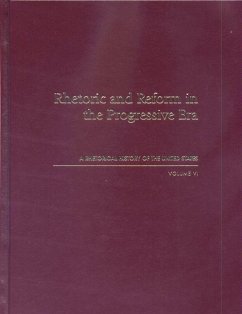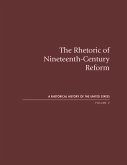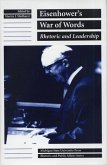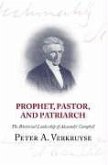The Progressive Era witnessed a rhetorical renaissance that changed how Americans talked about politics and society. Marking a clean break from the rhetoric of the Gilded Age, the discourse of progressivism represented a new common language of political and social analysis that was reform-oriented, moralistic, and optimistic about the future. Progressives shared a strong faith in public opinion, and they revitalized the public sphere through a variety of initiatives to encourage public discussion and empower the citizenry. Whatever their differences, Progressives believed that a democratic public, properly educated and deliberating freely, represented the best hope for America in the modern age. Rhetoric and Reform in the Progressive Era presents twelve major studies of the discourse of progressivism, ranging from fresh interpretations of Theodore Roosevelt and Woodrow Wilson, to new studies of the "working class eloquence" of Eugene Debs, the debate between W. E. B. Du Bois and Marcus Garvey, and the peace advocacy of Jane Addams. Other studies in this volume explore the rhetorical origins of the conservation movement and professional journalism, chart the progress of the woman suffrage crusade, and show how Progressive social thinkers planted the seeds of the Ku Klux Klan's resurgence in the 1920s. Taken together, these essays display the remarkable diversity and vitality of the Progressive rhetorical renaissance. They show how robust democratic speech became a distinguishing characteristic of the Progressive Era. Volume 6 is the first volume to be published in the Rhetorical History of the United States.
Hinweis: Dieser Artikel kann nur an eine deutsche Lieferadresse ausgeliefert werden.
Hinweis: Dieser Artikel kann nur an eine deutsche Lieferadresse ausgeliefert werden.








